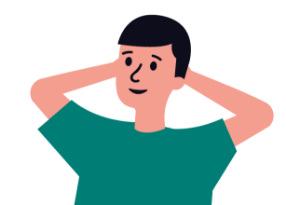
Inspiration
The WordDive Russian language courses can be completed on the internet or in our mobile app. Break the language barrier with the WordDive method in just 63 hours!
The courses are suitable for adults and young people. The beginners’ courses start with the greetings and intermediate learners focus e.g. on travel and work.
Dive into the Russian language with WordDive and start learning now!
Level: Elementary-Intermediate (A1-B2)
Duration: 130-400 hours
Size: 1860 study items
Courses: 15
Source languages: English, Finnish, German, Swedish
Getting Started with Russian
Level: Elementary (A1)
Topics: Cyrillic Alphabet, 100 Russian Words
Survival
Level: Elementary (A1-A2)
Topics: Important Words and Expressions, Me and Others, Travel and Accommodation
Russian 1
Level: Elementary (A1-A2)
Topics: My Family and Home, Important Words and Phrases, Doing Things
Comparison of Adjectives
Level: Elementary (A2)
Topics: Positive, Comparative, Superlative
Pronouns and Adjectives
Level: Elementary (A1-A2)
Topics: Personal Pronouns, Possessive Pronouns, Adjectives
Prepositions
Level: Elementary (A1-A2)
Topics: Prepositions of location, Preposition of travel, Prepositions in different contexts
Russian 2
Level: Elementary-Intermediate (A2-B1)
Topics: On the Move, Food and Drink, Time
Russian 3
Level: Elementary-Intermediate (A2-B1)
Topics: Work and Study, Free Time, Clothing and Appearance, Good to Know
Russian 4
Level: Elementary-Intermediate (A2-B2)
Topics: Seasons and Celebrations, Nature, People at Work, Where, Why and How Many?
Travel 1
Level: Elementary-Intermediate (A2-B1)
Topics: More Words and Expressions, Doing Things, Shopping and Services, Time and Numbers
Travel 2
Level: Intermediate (B1-B2)
Topics: Accommodation, From A to B, Necessities, Services, Meeting People, We Have a Problem, Experiences
Food and Drink
Level: Intermediate (B1-B2)
Topics: Ingredients, In the Kitchen, Starters and Main Courses, Drinks and Treats, Matters of Taste
Art and Culture
Level: Intermediate (B1-B2)
Topics: Visual Arts, Performing Arts, Music, Art Appreciation
Sports
Level: Intermediate (B1-B2)
Topics: Winter Sports, Athletics, Watching Sports, Ball Games, Martial Arts, Other Olympic Sports
Working Life
Level: Intermediate (B1-B2)
Topics: Job Hunting, In the Workplace, Time and Money, Communication



It’s easy to start learning Russian with WordDive. Complete the courses at your own pace on the internet or using the mobile app. The courses are designed by Finnish teachers and recorded and proofread by native speakers.
Studying Russian with WordDive is efficient, because the method activates your brain in many ways through multiple senses. You’ll see, think, read, write, listen and pronounce. The clear learning path is easy to follow. WordDive recognises your learning speed and optimises the pace of learning for you individually!
Russian (русский язык) is an East Slavic language that is closely related to other languages spoken in Europe. It is written using the Cyrillic alphabet.
Russian is the native language of about 175 million people and spoken as a second language by 130 million people, so there are over 300 million Russian speakers in total. Russian is spoken mainly in Russia, Ukraine, Belarus and many other countries of the former Soviet Union. The differences between dialects are small, and Russian speakers around the world can easily understand the different dialects.
Learning Russian grammar is an essential part of learning the language. Understanding grammar will help you on your way to becoming a more proficient user of both spoken and written Russian.
Once you understand the basics of grammar, you will be able to form clear, coherent and understandable sentences, and communicate effortlessly and efficiently in Russian.
Are you familiar with the Russian alphabet and grammar or do you need some revision? Revise Russian grammar efficiently on our grammar pages!
Learn more about Cyrillic letters and check out the instructions for setting up a Russian keyboard.







